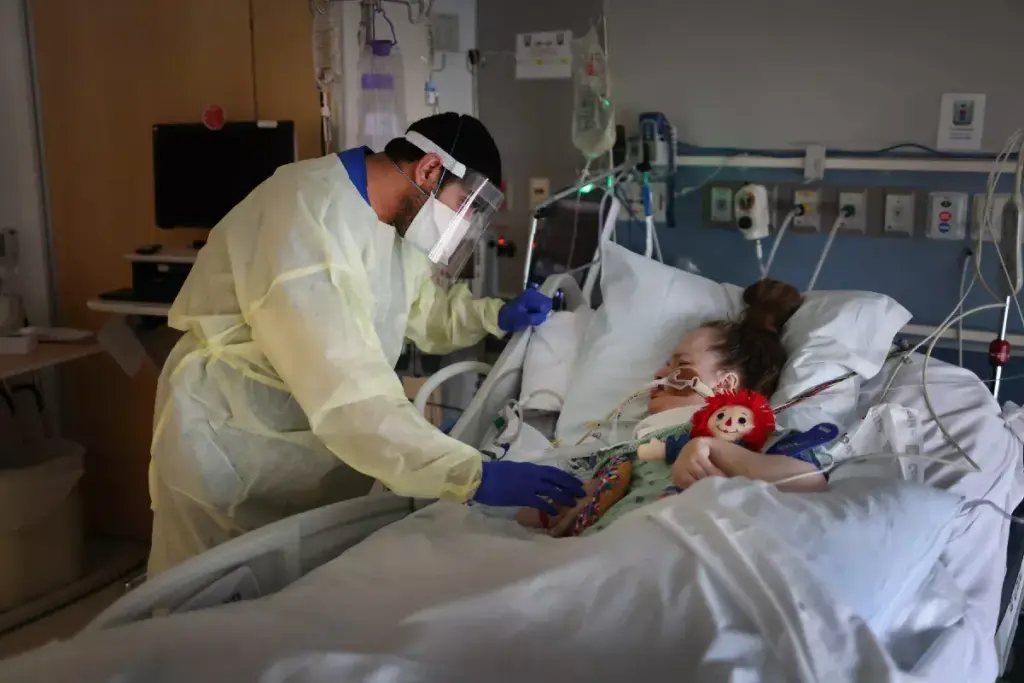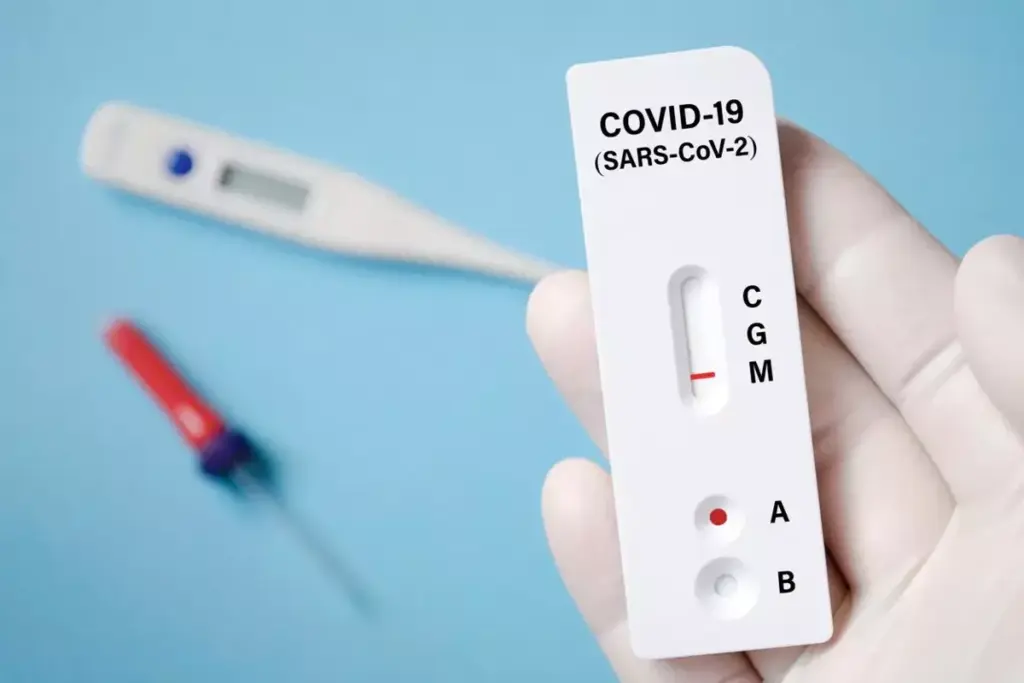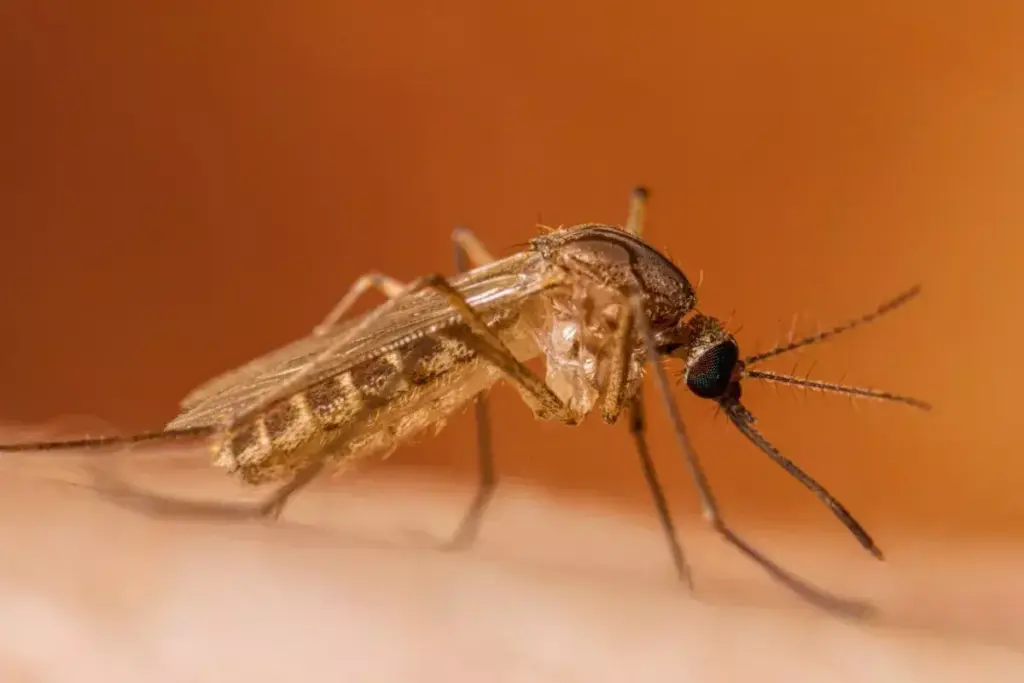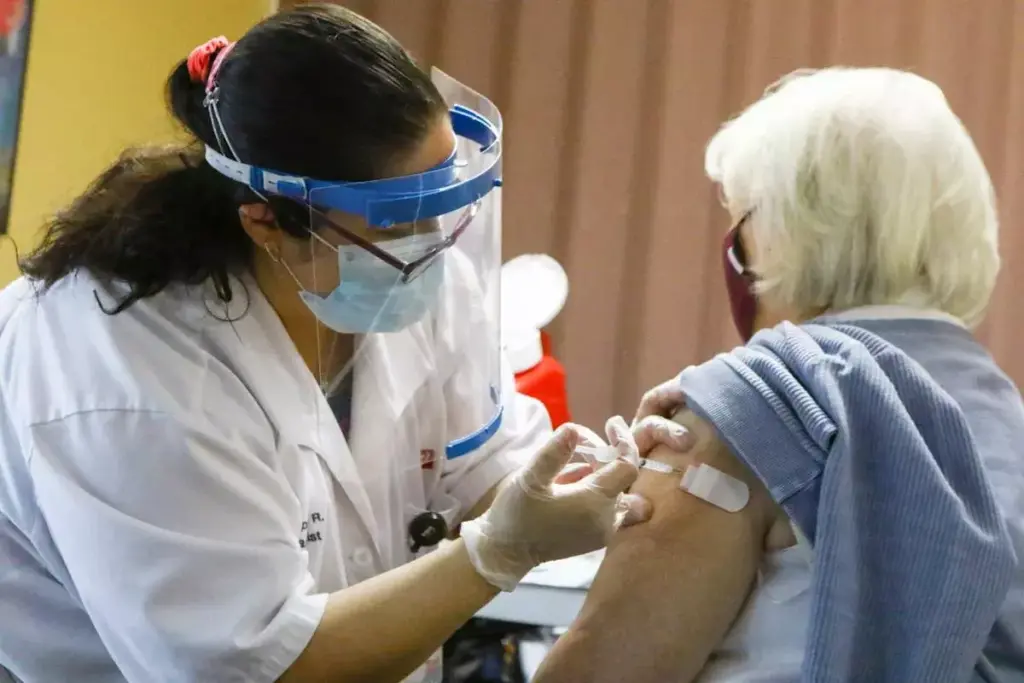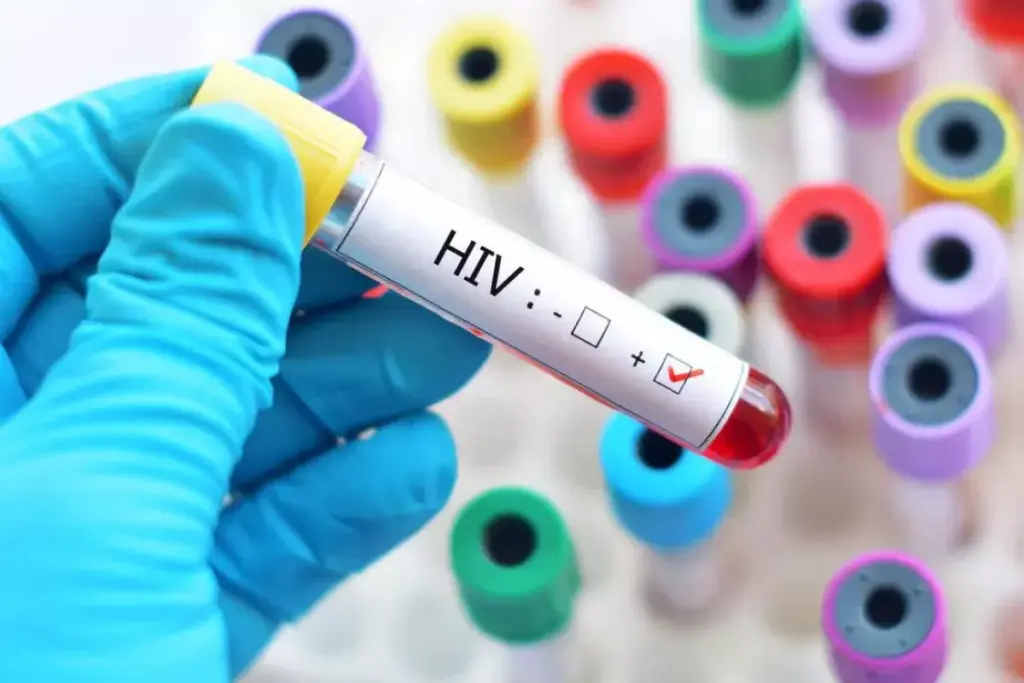Is Colon Cancer Hereditary? Nearly 1 in 5 people with colon cancer have a family history of it. This shows a big genetic link.
It’s key to know how genes play a part in colon cancer risk. Studies show those with a family history are more at risk. This makes checking genetic predisposition very important.
Learning about hereditary links in colon cancer helps people understand their risk. This knowledge lets them take steps to prevent it.
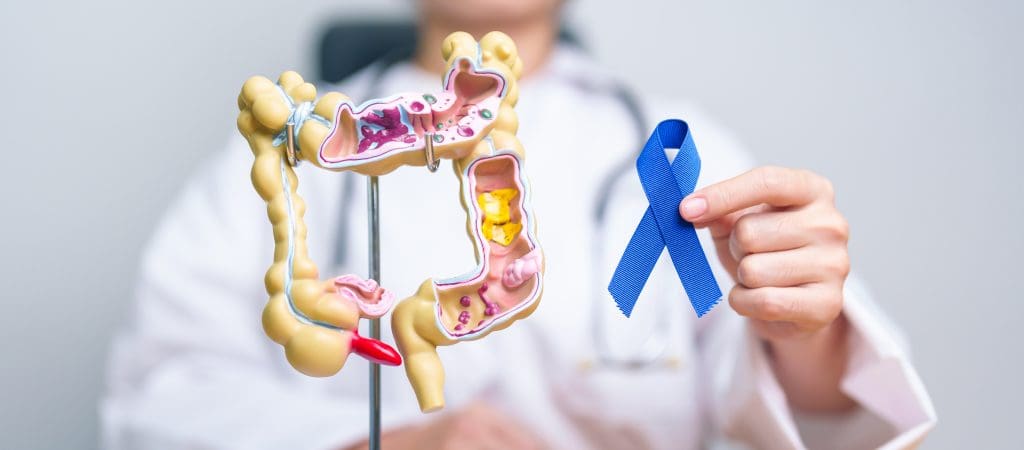
Key Takeaways
- Family history plays a significant role in colon cancer diagnosis.
- Genetic predisposition is a key factor in assessing colon cancer risk.
- Understanding hereditary factors helps in early detection and prevention.
- Colon cancer risk assessment is vital for those with a family history.
- Proactive steps can be taken to lower colon cancer risk.
Understanding Colon Cancer Basics
It’s important to know the basics of colon cancer. This knowledge helps us spot risk factors and improve treatment. Colon cancer affects the colon or rectum and is caused by genetics, environment, and lifestyle.
What is Colon Cancer?
Colon cancer, also known as colorectal cancer, starts in the colon or rectum. It often begins as a polyp, a growth on the inner lining. Not all polyps turn into cancer, but some can over time.
Common Risk Factors
Several factors can raise your risk of colon cancer. These include:
- Age: The risk grows with age, with most cases in people over 50.
- Family history: A family history of colon cancer or certain genetic syndromes increases your risk.
- Diet: Eating a lot of red and processed meat and not enough fiber can raise your risk.
- Lifestyle: Being inactive, obese, smoking, and drinking too much alcohol are also risks.
Incidence and Mortality Rates in the United States
Colon cancer is a common cancer in the United States. Recent data shows a lot of new cases each year, leading to many deaths.
The exact numbers change each year. But knowing these stats is key for public health planning and prevention.
The Role of Genetics in Colon Cancer
Understanding genetics in colon cancer is key to finding those at higher risk. It helps in setting up the right screening plans. Colon cancer is a complex disease, influenced by genes and the environment. Knowing the genetic side can help manage it better.
How Genes Influence Cancer Development
Genes control cell growth, division, and repair. Mutations in these genes can cause cells to grow out of control, a sign of cancer. Genes that fix DNA, control cell cycles, and cause cell death are important in stopping cancer.
Key genes affected in colon cancer include:
- APC (Adenomatous Polyposis Coli) gene, which is involved in cell migration and adhesion, and acts as a tumor suppressor.
- KRAS and BRAF genes, which are part of the MAPK/ERK signaling pathway that regulates cell division and differentiation.
- TP53, a tumor suppressor gene that plays a central role in maintaining genomic stability.
Sporadic vs. Hereditary Colon Cancer
Colon cancer can be either sporadic or hereditary. Sporadic colon cancer happens without a family history. It’s caused by somatic mutations due to environment and DNA errors.
Hereditary colon cancer, on the other hand, comes from inherited genetic mutations. This greatly increases the risk of colon cancer. Conditions like Lynch Syndrome and Familial Adenomatous Polyposis (FAP) are examples of hereditary syndromes.
Germline Mutations vs. Somatic Mutations
Germline mutations are inherited and found in every cell of an offspring. They significantly raise the risk of certain cancers, including colon cancer.
Somatic mutations, on the other hand, happen in non-reproductive cells and aren’t passed on. They can come from the environment, DNA errors, or viruses.
| Mutation Type | Description | Impact on Colon Cancer Risk |
| Germline Mutations | Inherited mutations present in every cell | Significantly increases risk; associated with hereditary syndromes |
| Somatic Mutations | Acquired mutations in non-reproductive cells | Contributes to sporadic colon cancer; risk influenced by environmental and lifestyle factors |
Hereditary Colon Cancer
Colon cancer can run in families. Knowing how it’s passed down is key to stopping it early. Hereditary colon cancer syndromes are caused by genetic mutations that families inherit. This raises their risk of getting colon cancer.
Defining Hereditary Cancer Syndromes
Hereditary cancer syndromes are linked to inherited genetic mutations. These mutations greatly increase the risk of certain cancers, like colon cancer. They often involve genes that help prevent tumors or fix DNA mistakes.
Lynch syndrome and Familial Adenomatous Polyposis (FAP) are well-known examples. Lynch syndrome comes from mutations in mismatch repair genes. FAP is caused by mutations in the APC gene.
Percentage of Colon Cancers with Hereditary Components
About 5-10% of colon cancers have a hereditary link. This means many people with colon cancer may have inherited genes that led to their disease.
| Hereditary Syndrome | Estimated Percentage of Colon Cancer Cases | Key Genetic Mutation |
| Lynch Syndrome | 2-4% | Mismatch repair genes (MLH1, MSH2, MSH6, PMS2) |
| Familial Adenomatous Polyposis (FAP) | 1% | APC gene |
| MUTYH-Associated Polyposis (MAP) | MUTYH gene |
Key Characteristics of Inherited Cases
Inherited colon cancer often starts earlier and can involve more than one cancer. It also tends to run in families, with a history of colon cancer or other cancers.
Early detection and prevention are critical for those with hereditary colon cancer syndromes. Regular screenings can catch cancer early, when it’s easier to treat.
Lynch Syndrome
Lynch syndrome is a genetic condition that raises the risk of certain cancers. It mainly affects colorectal cancer.
Defining Lynch Syndrome
Lynch syndrome, also known as hereditary nonpolyposis colorectal cancer (HNPCC), is caused by DNA mismatch repair gene mutations. These genes help fix DNA errors. Without them, genetic instability increases cancer risk.
Mismatch Repair Gene Mutations
The main genes linked to Lynch syndrome are MLH1, MSH2, MSH6, PMS2, and EPCAM. When these genes mutate, DNA repair fails. This leads to cancer-causing mutations.
Cancer Risks and Clinical Features
People with Lynch syndrome face higher cancer risks. This includes colorectal, endometrial, ovarian, stomach, and other cancers. The risk varies by gene mutation.
Signs of Lynch syndrome include a family history of cancers, early cancer onset, and multiple tumors in one person.
Screening Recommendations
Regular screenings are key for Lynch syndrome patients. They help catch cancers early. Screening includes:
- Colonoscopy every 1-2 years starting at age 20-25
- Annual endometrial biopsy and transvaginal ultrasound for women
- Consideration of prophylactic surgery in certain cases
Early detection and prevention can greatly improve outcomes for Lynch syndrome patients.
Familial Adenomatous Polyposis (FAP)
FAP is a rare genetic disorder. It causes hundreds to thousands of polyps in the colon and rectum. Without treatment, people with FAP face a nearly 100% risk of colorectal cancer by age 40.
Understanding FAP
FAP is caused by a mutation in the APC gene. This gene is inherited in an autosomal dominant pattern. So, just one copy of the mutated gene can cause the condition.
Polyps start forming in the teenage years. Early detection is key because these polyps can turn cancerous over time. Regular screening and monitoring are vital for those with a family history of FAP.
The APC Gene Mutation
The APC gene acts as a tumor suppressor. Mutations in this gene disrupt its function, leading to uncontrolled cell growth and polyp formation. Genetic testing can find these mutations, allowing for early intervention.
“Genetic testing for FAP is recommended for individuals with a family history of the condition, typically starting at age 10-12.”
NCCN Guidelines
Clinical Presentation and Diagnosis
FAP symptoms include multiple colorectal polyps, abdominal pain, rectal bleeding, and diarrhea. Diagnosis involves:
- Family history assessment
- Genetic testing for APC gene mutations
- Colonoscopy to visualize polyps
| Diagnostic Method | Description |
| Genetic Testing | Identifies mutations in the APC gene |
| Colonoscopy | Visual examination of the colon for polyps |
| Family History | Assessment of FAP in first-degree relatives |
Management Strategies
Managing FAP includes surveillance, surgery, and sometimes chemoprevention. The main goal is to prevent colorectal cancer by removing polyps and, in some cases, prophylactic colectomy.
Surveillance: Regular colonoscopies start at age 10-12 to monitor polyp development.
Surgery: Prophylactic colectomy is often recommended in late teenage years or early twenties.
MUTYH-Associated Polyposis (MAP)
Understanding MUTYH-Associated Polyposis (MAP) is key to spotting those at risk of colorectal cancer. It’s a rare genetic condition that raises the risk of many colorectal adenomas and cancers.
Genetic Basis of MAP
MAP is caused by mutations in the MUTYH gene. This gene is vital for fixing DNA damage. When it’s mutated, it can’t do its job, leading to more genetic mistakes and a higher risk of cancer.
Autosomal Recessive Inheritance Pattern
MAP is inherited in an autosomal recessive way. This means you need two copies of the mutated MUTYH gene to have the condition. Carriers with one copy are usually fine but can pass the mutation to their kids.
Clinical Features
People with MAP often have many colorectal adenomas, sometimes hundreds. The risk of colorectal cancer is very high, almost 100% if not treated. They might also have other health issues, but these are less common.
Treatment Approaches
Managing MAP means regular colonoscopies to catch and remove adenomas early. The schedule depends on the person’s risk and health. Sometimes, removing the colon is considered, mainly for those with many polyps or cancer history.
Key considerations for managing MAP include:
- Regular colonoscopic surveillance
- Removal of adenomas
- Consideration of prophylactic colectomy in high-risk cases
- Genetic counseling for affected individuals and their families
Other Hereditary Colorectal Cancer Syndromes
There are more than just Lynch syndrome and Familial Adenomatous Polyposis (FAP) that raise the risk of colorectal cancer. These less common syndromes are important for understanding the wide range of risks for colorectal cancer.
Peutz-Jeghers Syndrome
Peutz-Jeghers syndrome is known for its specific polyps in the gut and a higher risk of cancers. It’s caused by a mutation in the STK11 gene.
Key Features:
- Hamartomatous polyps in the gastrointestinal tract
- Mucocutaneous melanin deposits
- Increased risk of colorectal, breast, and other cancers
Juvenile Polyposis Syndrome
Juvenile polyposis syndrome is identified by many juvenile polyps in the gut, mainly in the colon. It also raises the risk of colorectal cancer.
Key Features:
- Multiple juvenile polyps, often more than five
- Increased risk of colorectal cancer
- Possible involvement of SMAD4 or BMPR1A genes
Cowden Syndrome
Cowden syndrome, also known as PTEN hamartoma tumor syndrome, is marked by many hamartomas and a higher risk of cancers. It’s caused by a mutation in the PTEN gene.
Key Features:
- Multiple hamartomas
- Mucocutaneous lesions
- Increased risk of breast, thyroid, and endometrial cancers
Serrated Polyposis Syndrome
Serrated polyposis syndrome is identified by many serrated polyps in the colon. It also raises the risk of colorectal cancer.
Key Features:
- Multiple serrated polyps
- Increased risk of colorectal cancer
- Potential for familial clustering
| Syndrome | Gene Involved | Key Features | Cancer Risk |
| Peutz Jeghers Syndrome | STK11 | Hamartomatous polyps, mucocutaneous melanin deposits | Colorectal, breast, and other cancers |
| Juvenile Polyposis Syndrome | SMAD4 or BMPR1A | Multiple juvenile polyps | Colorectal cancer |
| Cowden Syndrome | PTEN | Multiple hamartomas, mucocutaneous lesions | Breast, thyroid, endometrial cancers |
| Serrated Polyposis Syndrome | Multiple genes potentially involved | Multiple serrated polyps | Colorectal cancer |
Family History and Colon Cancer Risk
Knowing how family history affects colon cancer risk is key. It helps spot those at higher risk early. This way, they can get screened and take steps to prevent it.
Assessing Family History
Looking into family history means collecting info on relatives’ health, focusing on colon cancer. This is vital for figuring out a person’s risk.
A study in the Journal of the American Medical Association (JAMA) showed a link. People with a family history of colon cancer face a higher risk.
“Individuals with a first-degree relative diagnosed with colorectal cancer have an increased risk of developing colorectal cancer themselves.”
Risk Based on First-Degree Relatives
First-degree relatives are parents, siblings, and children. If one of them has colon cancer, your risk goes up. The risk grows if they were young when diagnosed or if many relatives have it.
| Number of First-Degree Relatives with Colon Cancer | Relative Risk |
| 1 | 1.8-2.0 times |
| 2 or more | 2.0-4.0 times |
Risk Based on Second-Degree Relatives
Second-degree relatives are grandparents, aunts, uncles, nieces, nephews, and grandchildren. While the risk isn’t as high as with first-degree relatives, it can increase if they have colon cancer.
Familial Clustering Without Known Syndromes
Sometimes, families see a lot of colon cancer without a known syndrome. This can mean relatives are at higher risk, even without a specific genetic syndrome.
For those with a big family history, genetic counseling and testing might be suggested. Knowing your risk can lead to more screenings. This could catch colon cancer early, making treatment more effective.
Genetic Testing for Hereditary Colon Cancer
Genetic testing plays a key role in diagnosing and managing hereditary colon cancer. It helps assess risk and guide treatment. As we learn more about colon cancer’s genetic causes, genetic testing becomes more important.
Who Should Consider Genetic Testing
If you have a family history of colon cancer, you might want to get tested. Guidelines suggest testing for those with two or more close relatives with colon cancer. This includes those diagnosed before 50.
Types of Genetic Tests Available
There are several genetic tests for hereditary colon cancer risk. These include:
- Single gene tests for specific genes linked to colon cancer, like Lynch syndrome or FAP.
- Multi-gene panel tests that check many genes at once for a wider risk assessment.
Understanding Test Results
Getting your genetic test results means understanding what they mean. A positive result shows a mutation linked to higher cancer risk. But a negative result doesn’t mean you’re completely safe, as not all causes are known.
Insurance Coverage and Legal Protections
It’s important to know about the financial and legal sides of genetic testing. In the U.S., the Genetic Information Nondiscrimination Act (GINA) protects against job and health insurance discrimination. But, insurance coverage for genetic tests varies. Always check your policy.
Genetic Counseling Process
Genetic counseling helps people understand their risk of colon cancer. It’s a key step for making informed choices about genetic tests and how to manage risks.
Role of Genetic Counselors
Genetic counselors are experts in genetics and counseling. They help figure out your risk of hereditary colon cancer. They also explain genetic test results and offer advice on talking to your family about risks.
Key responsibilities of genetic counselors include:
- Looking at your family history and medical records to see if you might have a hereditary cancer syndrome
- Telling you about the good and bad of genetic testing
- Explaining your genetic test results and what they mean
- Offering emotional support and counseling to you and your family if you have hereditary colon cancer
What to Expect During Counseling
In a genetic counseling session, you’ll talk about your family and medical history, and your genetic test results. The counselor will look at your risk of hereditary colon cancer. Then, they’ll give you advice on managing that risk.
Psychological Aspects of Genetic Testing
Getting tested for hereditary colon cancer can be tough on your mind. You might feel anxious, scared, or unsure about your test results and what they mean for your family.
Genetic counselors are trained to help with these feelings. They offer emotional support during the testing process.
Family Communication Strategies
Talking openly with your family about genetic test results and risk management is key. Genetic counselors can help you figure out how to share this information. They also guide you on how to discuss the risks and benefits with your family.
Strategies for effective family communication include:
- Deciding who in your family should know about the test results
- Getting ready for how your family might react
- Creating a plan for sharing test results and risk management advice
Screening Recommendations for High-Risk Individuals
For those at high risk of colon cancer, knowing the right screening is key. People with a family history of colon cancer or certain genetic syndromes need a special screening plan.
General Population vs. High-Risk Screening
The general population starts screening at age 45. But, high-risk individuals may need to start screening earlier and more often. This includes those with a family history of colon cancer, known genetic mutations, or a personal history of colorectal cancer or polyps.
The American Cancer Society says, “For people at higher risk of colorectal cancer, such as those with a family history or certain genetic syndromes, screening may need to start earlier and be done more often.”
“The risk of colorectal cancer is higher in individuals with a family history, and they need more vigilant screening.”
Colonoscopy Guidelines
Colonoscopy is the top choice for colon cancer screening, mainly for high-risk individuals. The frequency of colonoscopies depends on the individual’s risk factors and previous screening findings. For example, those with Lynch syndrome might need colonoscopies every 1-2 years starting at age 20-25.
| Risk Category | Age to Start Screening | Screening Interval |
| High Risk (Lynch Syndrome, FAP) | 20-25 years | 1-2 years |
| Family History | 10 years before the age of the earliest diagnosis | 5 years |
| General Population | 45 years | 10 years (if no polyps found) |
Other Screening Modalities
While colonoscopy is best for high-risk individuals, other options exist. Stool-based tests (like fecal occult blood tests) and CT colonography are alternatives. They are good for those who can’t have colonoscopy or prefer less invasive methods.
Surveillance Schedules
Surveillance schedules are key for high-risk individuals, after polyp removal or colon cancer diagnosis. The follow-up colonoscopy frequency depends on the polyp’s number, size, and type, plus the individual’s risk profile.
For example, those with large or many polyps might need more frequent checks. Guidelines suggest surveillance colonoscopy at 3 years for high-risk findings. Then, follow-up is based on new findings.
Preventive Strategies for Those with Hereditary Risk
Preventive strategies are key for those at risk of colon cancer. They help lower the chance of getting colon cancer. By using these strategies, people can greatly reduce their risk.
Lifestyle Modifications
Changing your lifestyle can help fight colon cancer. This includes eating better, being more active, staying at a healthy weight, and not smoking.
- Dietary Changes: Eat more fruits, veggies, and whole grains. Cut down on red and processed meats.
- Physical Activity: Regular exercise helps keep you healthy and lowers cancer risk.
- Healthy Weight: Keep a good BMI through diet and exercise.
- Avoiding Tobacco: Don’t smoke, as it increases cancer risk, including colon cancer.
Chemoprevention Options
Chemoprevention uses medicines or natural items to stop cancer. For those at high risk of colon cancer, certain drugs might be suggested.
| Chemopreventive Agent | Potential Benefits |
| Aspirin | Some studies show it can lower colon cancer risk. |
| COX-2 Inhibitors | They might reduce polyps in FAP cases. |
Prophylactic Surgery Considerations
For some, removing the colon or rectum might be a choice. This surgery aims to stop cancer before it starts.
Choosing surgery is a big decision. It depends on your health, the genetic issue, and how it might affect your life.
Knowing about these prevention methods helps those at risk. They can make better health choices and lower their colon cancer risk.
Current Research and Future Directions
Hereditary colon cancer research is moving fast. New genetic discoveries and screening technologies are leading the way. Studies have made us understand more about the genes linked to this cancer. This knowledge helps in creating better screening and prevention plans.
Emerging Genetic Discoveries
Genetic studies have found important genes and mutations linked to colon cancer risk. For example, APC gene mutations cause Familial Adenomatous Polyposis (FAP). Mutations in mismatch repair genes are tied to Lynch Syndrome. These findings help us understand these conditions better and guide new screening and prevention methods.
Key Genetic Discoveries:
- Identification of new genes associated with hereditary colon cancer syndromes
- Advances in genetic testing technologies
- Improved understanding of the penetrance and expressivity of known mutations
Novel Screening Technologies
New screening tools are changing how we find and prevent colon cancer early. Better colonoscopy techniques and non-invasive tests are helping catch more cancers. This reduces the chance of cancers happening between screenings.
Advances in Precision Medicine
Precision medicine is key in managing hereditary colon cancer. It tailors treatments and prevention to each person’s genes. This approach offers more effective care and helps understand how to lower risk from certain mutations.
| Precision Medicine Approach | Benefits |
| Genetic Profiling | Personalized risk assessment and management |
| Targeted Therapies | More effective treatment with fewer side effects |
| Preventive Strategies | Early intervention to reduce cancer risk |
Clinical Trials for High-Risk Individuals
Clinical trials are vital for improving our understanding and treatment of hereditary colon cancer. People at high risk can join trials on new screening and treatment methods. These trials help advance medical knowledge and offer access to new care options.
By keeping up with research, healthcare and at-risk individuals can work together. This collaboration helps lower the incidence and impact of hereditary colon cancer.
Conclusion
It’s important to understand how genetics play a part in colon cancer. This knowledge helps find people at high risk early. It also leads to better screening and prevention plans.
Hereditary colon cancer syndromes, like Lynch Syndrome and Familial Adenomatous Polyposis, raise the risk a lot. A detailed risk assessment is needed. This includes looking at family history and genetic tests.
Early detection and prevention can greatly lower the risk of colon cancer. Knowing your genetic risk and acting on it can help a lot. Healthcare providers are key in guiding patients through genetic testing and counseling.
In the end, a tailored approach to colon cancer screening and prevention is essential. It should consider an individual’s genetic risk and family history. This approach can significantly reduce the disease’s impact.
FAQ
Is colon cancer hereditary?
Yes, colon cancer can be hereditary. Certain genetic syndromes, like Lynch syndrome and Familial Adenomatous Polyposis (FAP), raise the risk of colon cancer.
What are the genetic factors that contribute to colon cancer risk?
Genetic factors include inherited mutations in genes like the APC gene in FAP and mismatch repair genes in Lynch syndrome. These mutations increase the risk of colon cancer.
How does family history affect colon cancer risk?
A family history of colon cancer, mainly in first-degree relatives, raises an individual’s risk. The risk grows if many relatives are affected or if they were diagnosed young.
What is Lynch syndrome, and how does it relate to colon cancer?
Lynch syndrome is a hereditary cancer syndrome caused by mutations in mismatch repair genes. It significantly increases the risk of colon cancer, as well as other cancers like endometrial and ovarian cancer.
What is FAP, and how is it related to colon cancer?
FAP is a hereditary condition caused by a mutation in the APC gene. It leads to hundreds to thousands of polyps in the colon, greatly increasing the risk of colon cancer if untreated.
Who should consider genetic testing for hereditary colon cancer?
Those with a strong family history of colon cancer, diagnosed young, or with known hereditary colon cancer syndrome should consider genetic testing.
What are the benefits of genetic counseling for individuals at risk of hereditary colon cancer?
Genetic counseling helps understand risk, make informed testing decisions, and develop strategies for managing risk. This includes screening and preventive measures.
What are the recommended screening strategies for individuals with a hereditary risk of colon cancer?
Those at hereditary risk may need more frequent and earlier screening, often starting with colonoscopy. The schedule depends on individual risk factors and the hereditary syndrome.
Can lifestyle modifications reduce the risk of colon cancer in individuals with a hereditary risk?
While lifestyle changes like a healthy diet, exercise, and not smoking can’t eliminate risk, they may help reduce it. Individuals with a hereditary risk should discuss their situation with a healthcare provider.
What are the current research directions in hereditary colon cancer?
Research focuses on emerging genetic discoveries, novel screening technologies, advances in precision medicine, and clinical trials for high-risk individuals. These aim to improve risk assessment, screening, and prevention strategies for hereditary colon cancer.



